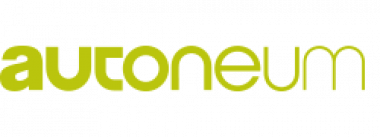Autoneum: Half-Year Results 2023
Autoneum's consolidated revenue increased by 24.1% from CHF 888.7 million to CHF 1 102.6 million in the first half of 2023. The Group grew significantly both organically, thanks to a market recovery in Europe and North America, and inorganically, through the acquisition of the traditional German company Borgers. All business units improved their profitability compared to the prior-year period. EBIT adjusted for special effects increased by CHF 33.0 million to CHF 45.0 million and the EBIT margin rose from 1.4% to 4.1% compared to the prior-year period. EBIT rose by CHF 78.5 million to CHF 84.9 million in the same period, with an increase in EBIT margin of 7.0 percentage points to 7.7%. Autoneum achieved a solid net result of CHF 57.8 million. Business Group North America nearly reached break-even point before special effects. As planned, the Borgers units, consolidated for the first time in the second quarter, made a positive contribution to the overall result from day one.
Economic conditions in the automotive supply industry improved in the first half of 2023 compared to the prior-year period. There was a slight easing of supply chains and a rise in production volumes among vehicle manufacturers already in the first quarter of 2023. This was especially true in markets that had previously been heavily impacted by supply chain bottlenecks.
Global automobile production climbed by 11.8%* compared with the prior-year period, although consumer demand was somewhat dampened by high vehicle prices in some markets. In this improved market environment and supported by the acquisition of the automotive business from Borgers, a long-standing German company, as of April 1, 2023, Autoneum increased its revenue and net result substantially in the first six months compared with the same period of the previous year.
- Positive revenue development supported by inorganic growth
- Significant improvement of operational profitability and solid net profit
- Equity ratio influenced by the acquisition of Borgers Automotive
- Creation of a capital band
- Business Groups
- Integration of Borgers automotive business
- Working on behalf of electromobility with sustainable noise absorption in underbody
- shields
- Change to the Group Executive Board
- SBTi recognizes Autoneum’s science-based targets
Outlook unchanged
According to the current S&P market forecasts, it is expected that global automobile production will climb by 5.7%* in 2023 compared with 2022. Autoneum anticipates that production volumes in the various regions will develop in line with the forecasts. Customer negotiations are ongoing and Autoneum expects that the increase in costs for raw materials, energy, transportation and staff will be completely offset in the second half of the year. Based on the forecast market development and the renegotiated customer agreements, Autoneum confirms the outlook that it published in March 2023. The Company expects total revenue of CHF 2.4 to 2.5 billion at unchanged exchange rates for the financial year 2023, an EBIT margin of 3.5% to 4.5% excluding one-time effects and a free cash flow in the higher double-digit millions, excluding acquisition-related net cash outflows.
For more information, see attached document.
*Source: S&P market forecast – August 15, 2023
Autoneum Management AG








